
A music marketing plan doesn’t have to be boring and corporate
Every DIY musician has a story about being overwhelmed, frustrated, and deflated when marketing or promoting their music. As a musician friend once said, it feels like “drowning.”
If this describes you, you can benefit a great deal from a music marketing plan.
A well-defined marketing plan brings order to your music promotion campaigns. You don’t scratch your head wondering what to do next, nor do you chase the latest shiny channel dangling before you.
Instead, you have an organized and structured process to get your music out there.
I’ll make a stronger case for creating a music marketing plan below. And along the way, I’ll also show you how to create one from scratch.
GET FREE MUSIC MARKETING TOOLS AT SHOW.CO
Why You Need a Marketing Plan
What do musicians mean when they say they want to “market” their music?
Do they mean they want to promote it on the radio? Get more plays on SoundCloud? Submit a song to be on a Spotify playlist? Build up a loyal following of email subscribers?
All of the above, of course.
The problem is that each of these end results – radio plays, social media followers, etc. – describes a completely different marketing skill.
To get into radio, you need strong PR skills. To get email subscribers, you need to attract and capture reader interest. And to get Instagram followers, you need social media skills.
This is the first mistake DIY musicians make: they think of “marketing” as a single broad endeavor.
Rather, marketing is a complex web of interrelated fields including digital advertising, branding, and grassroots efforts. It includes everything from a $15 article to a $15M Superbowl commercial.
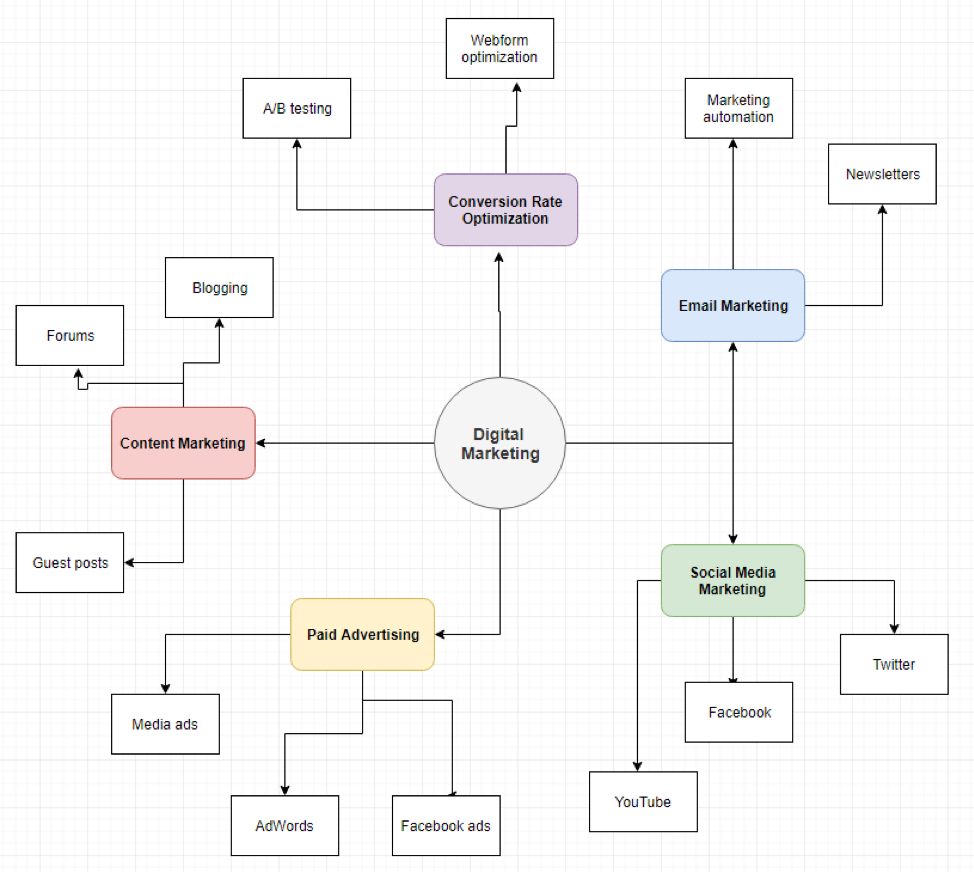
This is the reason why so many DIY musicians feel unmoored when they try to market themselves without a plan. Unless you know exactly what you’re doing, it’s easy to try far too many things at the same time and get no real results.
A marketing plan grounds you. Over time, it becomes the central repository of your marketing knowledge. It shows you what to do, when to do it, and most importantly, why you must do it.
For anyone whose day job is not in marketing, this can have a transformative impact on your results.
Not Just About Tactics
Perhaps because of its utilitarian name, it is easy to dismiss a marketing plan as just a collection of tactics and actionable tips.
But the process to create this plan often requires deep introspection. A good marketing plan springs from a strong marketing strategy. And as you set about building your strategy, you’ll develop a far better understanding of your audience, your music, and even yourself.
Consider a basic question asked in every marketing plan: How should you allocate your marketing resources (i.e. your ‘marketing mix’)?
To answer this question, you would first need to understand:
- The channel you’re most comfortable or skilled in – social, video, content marketing, etc.
- Your budget and how serious you are about your marketing.
- Your audience and where it hangs out.
- What kind of channel is best suited to your kind of music.
Similarly, a “brand strategy” is a part of any marketing plan. To create this brand strategy, you would first need to introspect on your own beliefs, goals — long-term and short-term — and values.
This is one of the most understated benefits of creating a DIY music marketing plan. The introspection can reveal new insight into who you are and what matters to you.
This brings us to the big question: How do you go about creating a music marketing plan?
I’ll share some answers below.
Creating a Music Marketing Plan
A marketing plan is simply a document that outlines an organization’s (or in your case, an individual’s) marketing tactics for the coming year.
This document can be as broad or as shallow as necessary. A small computer repair outfit might have a one-page marketing plan. Coca-Cola’s might run into hundreds of pages.
If you Google around for a marketing plan template, you might see that most plans have sections like these:
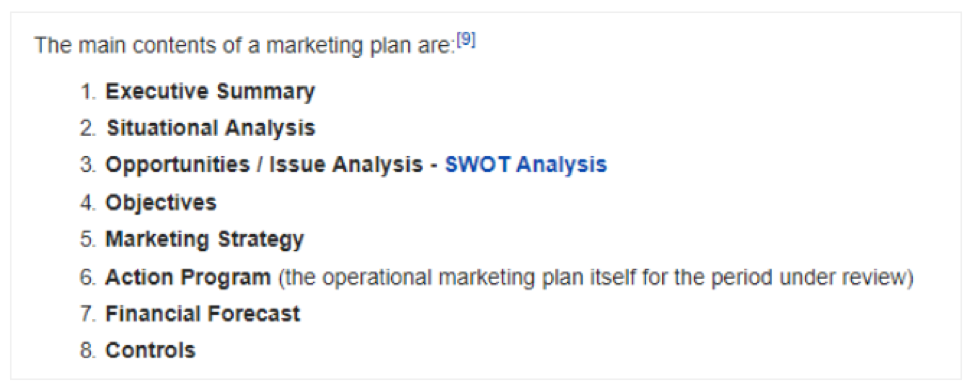
As a musician, you don’t need to follow this template. You’re not trying to impress colleagues or get approval from your boss, after all. Your purpose is to simply define your strategy and document your marketing approach.
Essentially, your marketing plan needs to answer four questions:
- Who is your target audience?
- What are your marketing goals?
- Where will you market your music?
- How will you market yourself?
In addition, it is crucial that you also have a strategy document. This can be a long subjective essay, a PowerPoint presentation, a video – it’s all up to you. The goal of this document is to help you understand your own goals, motivations, and approach.
So keeping this mind, let’s look at the process you should follow to create a basic music marketing plan.
Start With Introspection
All great marketing plans are founded on a deep understanding of the product (music), the business (you), and the target market (listeners).
You might call this “strategy”; I just call it introspection.
Your goal in this step is to figure out who you are as a musician. You want to go deep and understand your motivations for pursuing music. The marketing plan for someone who wants to headline Tomorrowland will be very different from someone who just wants to play their local cafe’s indie night.
There is no fixed blueprint for this step. Rather, I recommend asking yourself open-ended questions and writing down the answers in long-form.
Here are some questions you can ask yourself:
- What kind of music do you like to make? Why?
- If you could take the place of any musician in the world right now, who would it be? Why?
- Where does your music career currently stand? Where do you see yourself in five years?
- What kind of listeners do you hope to attract?
- What is your ideal venue to play music in? A stadium, a small bar, or a mid-sized venue?
- Beyond music, which musician’s brand do you identify with?
People often jump into making music without truly understanding what kind of musician they want to be. Questions like these will help you turn your vague ideas into a concrete plan.
I encourage you to answer them even if you don’t need a fixed marketing strategy.
Nail Down Your “Visual Brand”
Like it or not, but all music has a visual identity. How people receive you depends as much on this identity as it does on your music, themes, and lyrics.
I like to call this your “visual brand”, i.e. how you visually represent yourself. From the font you use to write your name in to the colors you use in your album art, everything contributes to this visual brand.
Part of this visual brand is dictated by your genre. A pop act uses a distinctively different set of visuals than a metal act.
For instance, the DIY Musician Blog’s editor, Chris Robley, has an aesthetic that aligns with his work as a singer-songwriter.
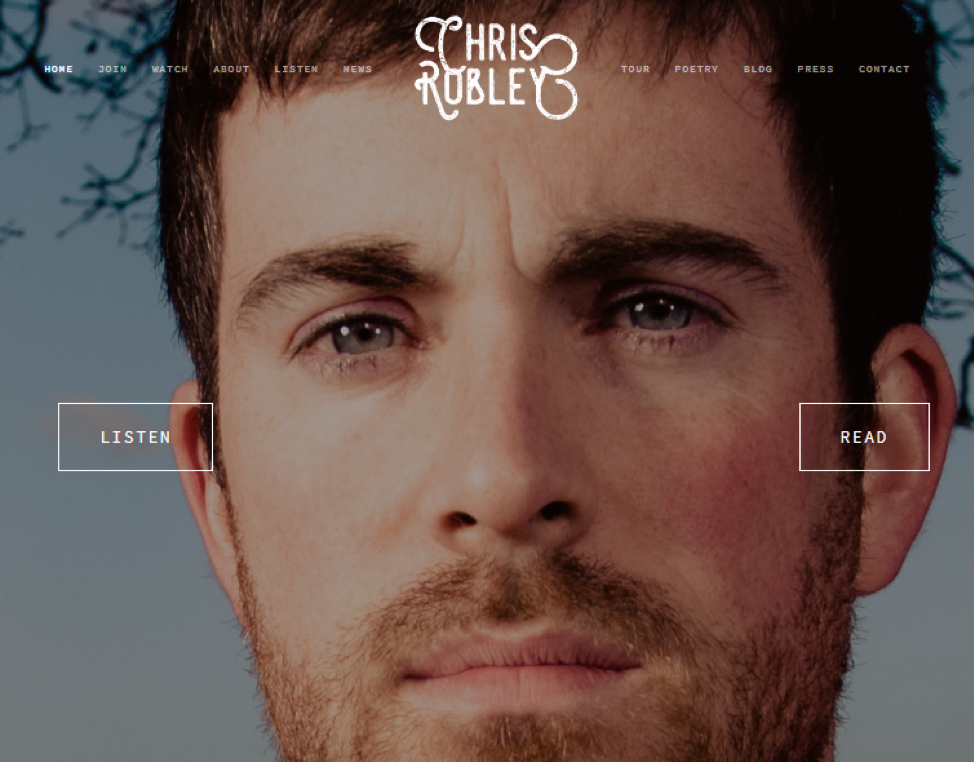
Compare this against Gucci Mane who has a clearly edgier visual aesthetic, keeping in line with his genre (hip-hop).
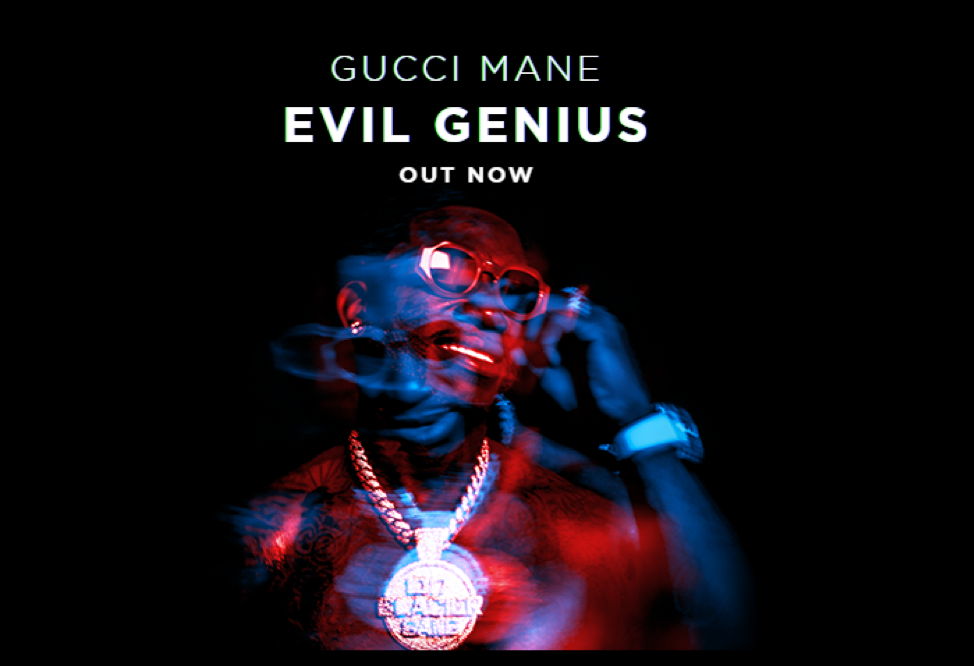
Before you start formally creating your marketing plan, take some time to audit out your visual brand. This should be inspired by the introspection you did earlier. The most compelling brand is one that is honest and authentic.
Here are a few things you can do to understand your visual brand:
- List your favorite artists and borrowing inspiration from their website, social media presence, album art, and videos
- Identify colors, iconography, videos, and images that align with your music
- Borrow inspiration from non-music sources such as movies, brands, architecture, and even design portfolios
Follow the auditing process used by professional design agencies to audit digital brands. Then curate everything in a Pinterest board. Refer to this whenever you’re producing any sort of collateral – website, album art, social media images – to promote your music.
Zero-Down on Your Objective
So many music marketing campaigns fall apart because musicians have no idea what they’re trying to actually achieve. They’ll usually resort to vague goals such as “become famous”. This might sound nice, but it gives you neither direction, nor any way to measure your performance.
What you need are a set of SMART goals, i.e. goals that are:
- Specific – You should be able to articulate the goal clearly. “Play a huge venue” isn’t specific; “Play Tomorrowland” is.
- Measurable – You should be able to measure your performance. For instance, “become more popular” isn’t measurable, but “get more Instagram followers” is.
- Attainable – While I’m all for ambition, your goals should be realistic. If you started producing music six months ago, “headline Tomorrowland in one year” isn’t attainable.
- Relevant – Pick a goal that is relevant to what you want to achieve. If you want to get more fans, you want more followers on Instagram and SoundCloud, not LinkedIn connections.
- Time-based – There should be a time component to every goal, otherwise you can easily lose your way.
Work backward from your broad, vague goals to arrive at your SMART goals.
For example, if you want to “become famous”, ask: What does being famous look like to you? More Instagram followers? Press mentions?
Use this to guide your objectives. If being famous means more Instagram followers, you could have a smart goal as follows:
- Attract 100,000 Instagram followers in the next 12 months
Ideally, any marketing plan should have at least 3 or more goals. You don’t want too many – it will just be a distraction.
You’ll find that SMART goals are much more motivating than vague ones regardless of what you’re doing – promoting your music, studying for an exam, or starting a business.
Analyze Where You Currently Stand
Once you’ve zeroed down on your objectives, it is time to take stock of the current situation. Where do you presently stand? What skills do you have? What do you need to acquire?
In business marketing plans, this part would be labeled a “SWOT Analysis” (Strengths, Weaknesses, Opportunities, Threats), but we don’t need to be so formal.
Instead of using the SWOT framework, do the following:
- List your current following across all social channels – your Facebook band page, YouTube channel, Instagram, Snapchat, etc.
- List your website traffic, email subscribers, and any other traffic, followers, or readers you might have
- List all your current marketing assets – websites, social accounts, brand assets (logo, album art, etc.)
- Identify your core marketing skills. What are you good at – creating content, managing social media, making videos?
- Identify marketing skills you need. Can you develop them? If yes, what are the time and dollar costs involved?
- Identify skills you need to outsource. List any relevant connections or knowledge you might have for this
- Identify social media accounts, publications, and curated playlists you want to target. Where do you currently stand in these relationships? Maybe you want to get your song featured in EarMilk or get a tweet from an industry influencer.
Once you’ve taken stock of your current situation, take a look at your goals again. Ask: What skills/resources do I need to acquire to meet my goals?
Filling this gap between what you have and what you need should be the basis of your marketing approach.
Define Your Music’s Audience
Strange as it may sound, the audience isn’t nearly as important in a music marketing plan. You’re not really selling anything (at least not in terms of money). And you already have a built-in audience for virtually every genre of music.
So where a conventional marketing plan would have detailed demographic and psychographic information, you only need to figure out the following:
- Where does your target audience hang out?
- What other artists do they like listening to?
- What is their preferred mode of listening to music?
The answers to these questions aren’t always clear, of course. Some genres have well-established communities (such as metal). For others – especially mainstream pop acts – the audience is often fragmented.
The ideal way to go about this is to interview some hardcore genre fans. Ask them what publications do they like to read, what forums they frequent, and where they discover new music.
If that’s not possible, turn to Google. Search for queries such as:
[your genre] + forum
[your genre] + blog
[your genre] + fan page
[related artist] + fan page
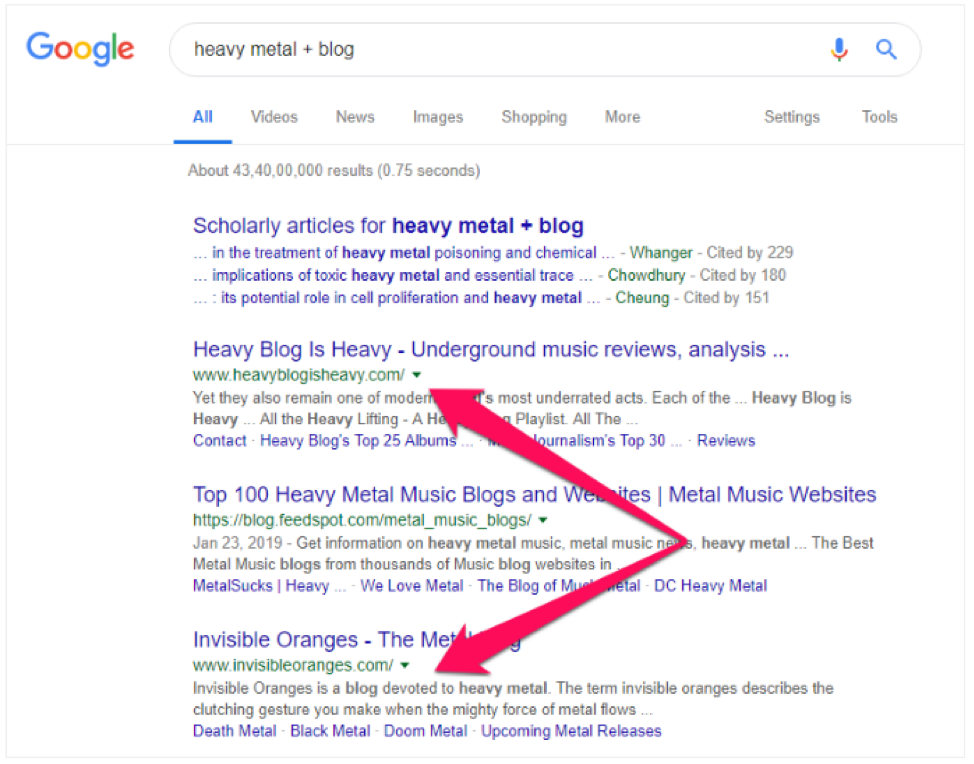
Use this to build up your list of target communities and their editors/founders. Any marketing you do should be based on answers to this list.
For instance, if your audience discovers new music mostly through a few industry blogs, building relationships with the editors at these blogs should be a top priority. You can even take advantage of pre-made lists such as my list of the 101 music blogs to speed up the process.
Besides distribution, genre-focused communities are also a great way to develop a deeper understanding of your audience. Dig through each community to figure out what kind of acts they like to feature. What other topics do they cover besides music?
You can plug each blog into Buzzsumo to see the most shared content on it. This will help you understand what topics, ideas, and content your target audience is most interested in.
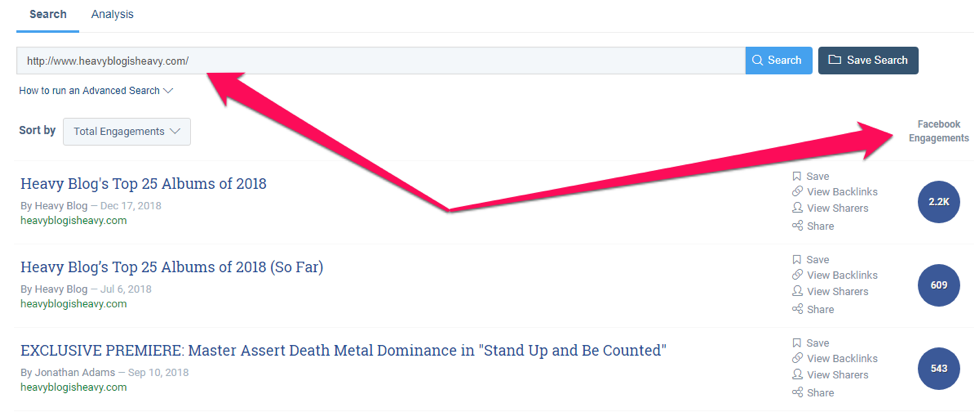
Bring it All Together
You’ve done a lot of homework so far.
Now it’s time to bring it all together in a comprehensive plan.
Again, don’t go by examples of marketing plans you find online. Most of them are focused on businesses and have no relevance to a musician promoting her music.
Instead, refer to your strategy document and specify the following:
- Objective, i.e. your exact goals and how you’ll measure them
- Audience, i.e. a brief overview of your genre, audience, and target communities where they hang out
- Current situation, i.e. what you currently have (skills, audience, resources) and what you need to acquire
- Action plan, i.e. a list of tactics you will use to bridge the gap between what you have and what you need in order to meet your goals.
For instance, if your goal is to grow your Instagram following, and you have strong social media marketing skills, your “action plan” might be to launch an Instagram influencer campaign.
You can expand this plan further by including information about finances, other musicians, and your brand. But for the most part, a knowledge of the target audience, your strengths/weaknesses, and your own music is enough to create a compelling music marketing plan.
Do this and you’ll find that music marketing isn’t quite as confusing anymore.
